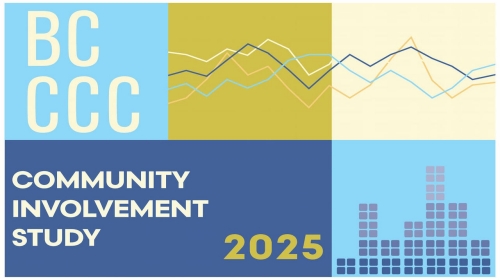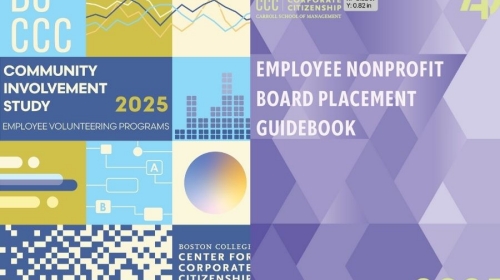WEBINAR: This webinar explores how to measure and communicate your organization's social impact with proven frameworks and strategies that matter to stakeholders.
Hometown heroes for food security

With the rise of COVID-19 and its effects on the economy, millions of Americans are newly at risk of food insecurity. In the most severe projections for the U.S., the annual food insecurity rate will rise by 5.2 percentage points to 16.7%, meaning that approximately 1 in 6 people will experience food insecurity in 2020.
To support food-insecure communities across the nation, many companies have risen to the occasion. In the following excerpt, Campbell Soup Company demonstrates how it has not only helped those facing food insecurity in its local community with its day-to-day operations and central mission of food production and distribution, but also has dedicated time and resources to combating the systemic issues that cause people to be food insecure.
Campbell Soup Company has always prided itself on being a leader in the fight against food insecurity. The Campbell Soup Foundation, the charitable arm of Campbell’s, has provided financial support to local champions that inspire positive change in communities throughout the U.S. where the company’s employees live and work. The Foundation places emphasis on Camden, NJ, birthplace of the Campbell Soup Company’s flagship soup business and home of its world headquarters. The Foundation’s grantmaking focuses on three strategic areas that support the company’s mission to strengthen and empower healthy communities where it operates. Those three strategic focus areas are: increasing access to healthy food, encouraging healthy living, and nurturing Campbell’s neighborhoods. With everyday Americans facing the burdens of food insecurity, Campbell’s is stepping up to aid its local communities.
With the onset of the COVID-19 pandemic, Campbell’s continued this dedication in providing direct financial support to local food banks, pantries, and community organizations across the country. In March 2020, the company made the initial commitment to support local organizations as it manages both the social and economic impact of the COVID-19 crisis, and donated more than $1 million in financial support and food organizations across America. Just 11 days later, Campbell’s raised its donation to $5 million, recognizing the dire need for assistance. This funding aided these organizations as they quickly shifted the way they operated, from direct feeding to mobile pantries, meal delivery, and other approaches dictated by the crisis. To date, the Campbell Soup Company’s funding has reached $6 million. “The increased need for shelf-stable food has been a consistent request from food banks in the wake of this pandemic,” said Kim Fortunato, vice president of community affairs and the president of the Campbell Soup Foundation. “We’ll continue to work with them to determine which products are most needed and dedicate production runs to meet their needs.”
Campbell’s also leverages the power of partnerships to aid in food security, as demonstrated by its close ties with the National Football League. The company’s headquarters in Camden, NJ, is situated between Philadelphia, home of the Philadelphia Eagles, and East Rutherford, NJ, home to the New York Giants; this therefore allows Campbell’s to be an active member in both communities, and provide aid and support to their hometowns. For example, notable NFL players Zach Ertz of the Philadelphia Eagles and Saquon Barkley of the New York Giants have both partnered with Campbell’s Chunky Soups in their efforts to combat food insecurity. Campbell’s Chunky has matched Ertz’s $100,000 contribution to Philabundance, one of Philadelphia’s foremost hunger relief organizations, and has similarly partnered with Barkley to make donations to the Food Bank of New York City and the Community Food Bank of New Jersey. During the 2020 NFL Draft in April, Campbell’s CEO Mark Clouse joined Ertz to announce the company’s $500,000 donation to Feeding America, one of the NFL’s charitable partners. “It’s an honor for everyone at Campbell’s to work with [Ertz], The Ertz Family Foundation, and the NFL, to ensure that we are providing food and comfort to those who need it most in Philadelphia and all of our hometowns,” said Clouse. “I want to thank Campbell’s employees and their families, especially those in the plants and in the stores, who are making sure that there is food on America’s tables every day.”
Keeping the momentum of impact strong, in May 2020, the Campbell Soup Foundation awarded 35 Community Impact Grants, totaling $620,000, to support the work of their community partners to increase food access, encourage healthy living, and nurture hometowns. The Campbell Soup Foundation informed the organizations that the grants are now unrestricted, allowing the organizations to use the funding to address needs brought on by the COVID-19 pandemic. “Now, more than ever, our community partners are critical resources in our hometowns,” said Fortunato. “We’re grateful for their partnership, and proud to assist them with any emerging needs as a result of the pandemic.”
Related Content
RESEARCH BRIEF - Researchers investigated how ESG activities help or hurt financial performance, using nine years of data from over 1,200 global companies.
RESEARCH BRIEF - Researchers analyzed 4 US energy exchange-traded funds (ETFs) over 15 years, including 2 dirty energy funds tracking fossil fuel companies and 2 clean energy funds tracking renewable energy companies.
RESEARCH BRIEF - Researchers conducted a survey, which measured perceptions of CSR and ethical leadership within the manufacturing and service industries.
WEBINAR: This webinar explores how corporate giving will be reshaped by the One Big Beautiful Bill. Hear directly from corporate citizenship leaders as they share innovative, real-world strategies that deliver impact for communities and results for business.
This study explores shifting trends in employee volunteering, corporate giving, and other means of corporate community involvement.
This guidebook offers insights on placing employees in nonprofit board service roles.
This study explores shifting trends in employee volunteering, corporate giving, and other means of corporate community involvement.








